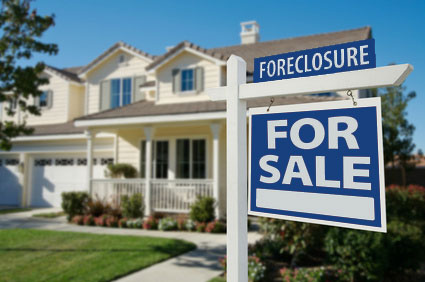 Foreclosures continue to occur at an alarming rate in many parts of the country. Many homeowners who obtained subprime mortgages earlier in the past decade or who now find themselves unemployed or underemployed because of the depressed economy are unable or unwilling to make their monthly mortgage payments
Foreclosures continue to occur at an alarming rate in many parts of the country. Many homeowners who obtained subprime mortgages earlier in the past decade or who now find themselves unemployed or underemployed because of the depressed economy are unable or unwilling to make their monthly mortgage payments
State and federal programs for distressed homeowners to assist in loan modifications are available to some but you may not qualify. For others, a short sale transaction is a way to extricate themselves from a home whose value is less than the loan amount, but these can be complicated and may not work for any number of reasons.
As a result, many people facing overwhelming financial pressures turn to bankruptcy as a solution, but can a bankruptcy stop foreclosure?
The Foreclosure Process
Once you miss at least 3-4 consecutive mortgage payments and the lender has sent you notices warning you of possible foreclosure, the lender will generally begin the process to repossess your home. This can take several months and in some instances more than one year.
Minnesota is a non-judicial foreclosure state, meaning that there is usually no court action. When the foreclosure is done without court action, it is called a “foreclosure by advertisement.” Mortgages typically have a power of sale clause allowing an attorney to foreclose on your home. A lender may choose, however, to go to court in a judicial foreclosure to obtain a judgment of foreclosure.
If your home is taken, there are certain reporting and notice requirements before the lender can sell it at an auction conducted by the sheriff, usually at a greatly reduced price. In Minnesota, as long as it’s a foreclosure by advertisement, you are not subject to a deficiency judgment if the sale is for less than the loan amount. This means that most of the time, as long as there is only one mortgage, a homeowner in Minnesota can walk away from a house free and clear. If there is a second mortgage, however, watch out. These days the holders of second mortgages are suing people in large numbers after the first mortgage has foreclosed. Sometimes they don’t even wait for the first mortgage to foreclose if the payments are not up to date.
Accordingly, if you are facing foreclosure, can a bankruptcy stop the foreclosure or benefit you in some way?
Can a Chapter 7 Bankruptcy Stop a Foreclosure?
Whenever you file for bankruptcy protection under a Chapter 7, an automatic stay of all legal proceedings, including foreclosures, goes into immediate effect. A Chapter 7, if you qualify, allows you to discharge most if not all of your debt.
Unfortunately, the lender is allowed to file a motion to lift the automatic stay as it pertains to your property as the lender can otherwise suffer economic harm. In this instance, a Chapter 7 will only temporarily delay the foreclosure.
It is very difficult to fight the motion to lift the automatic stay. About the only practical way to stop the motion is to get the payments up to date or make arrangements to bring the payments up to date. In a Chapter 7 the automatic stay ends when the discharge is granted, usually around three months after the case is filed. This means that most of the time lifting the stay doesn’t mean much anyway, because the stay was going away by itself.
At the least, you may be able to save thousands of dollars while not making any mortgage payments and take the time to look for alternative housing. Once the foreclosure is stopped, many lenders are very slow to get it started again. While the automatic stay officially only stops things for about three months, you will very likely gain much more time than that.
Can a Chapter 13 Bankruptcy Stop a Foreclosure?
The other bankruptcy filing available to a homeowner is Chapter 13. Under this plan, you must submit a repayment plan that includes all your creditors and that is approved by the bankruptcy trustee. The automatic stay also goes into immediate effect once you file.
Unlike a Chapter 7, this chapter allows you to keep your home but you must have proof of sufficient income to not only maintain the current mortgage payments but to make up the arrearages over the life of the repayment plan. Many repayment plans are for the maximum 60 months. Under a Chapter 13, then, you may be able to stop the foreclosure so long as the indicated conditions are met.
In a Chapter 13 it might also be possible to do a lien strip. We’ll know for sure when the Eighth Circuit Court of appeals finally decides the Fisette case. A lien strip would benefit homeowners with multiple mortgages. It would eliminate payments on all mortgages except the first one. If your home’s value has declined and the first mortgage has secured all the home’s equity, if any, then the other mortgages would be considered unsecured debt and will be discharged.
In any case involving a foreclosure, consult with an attorney to explore all your legal options.





